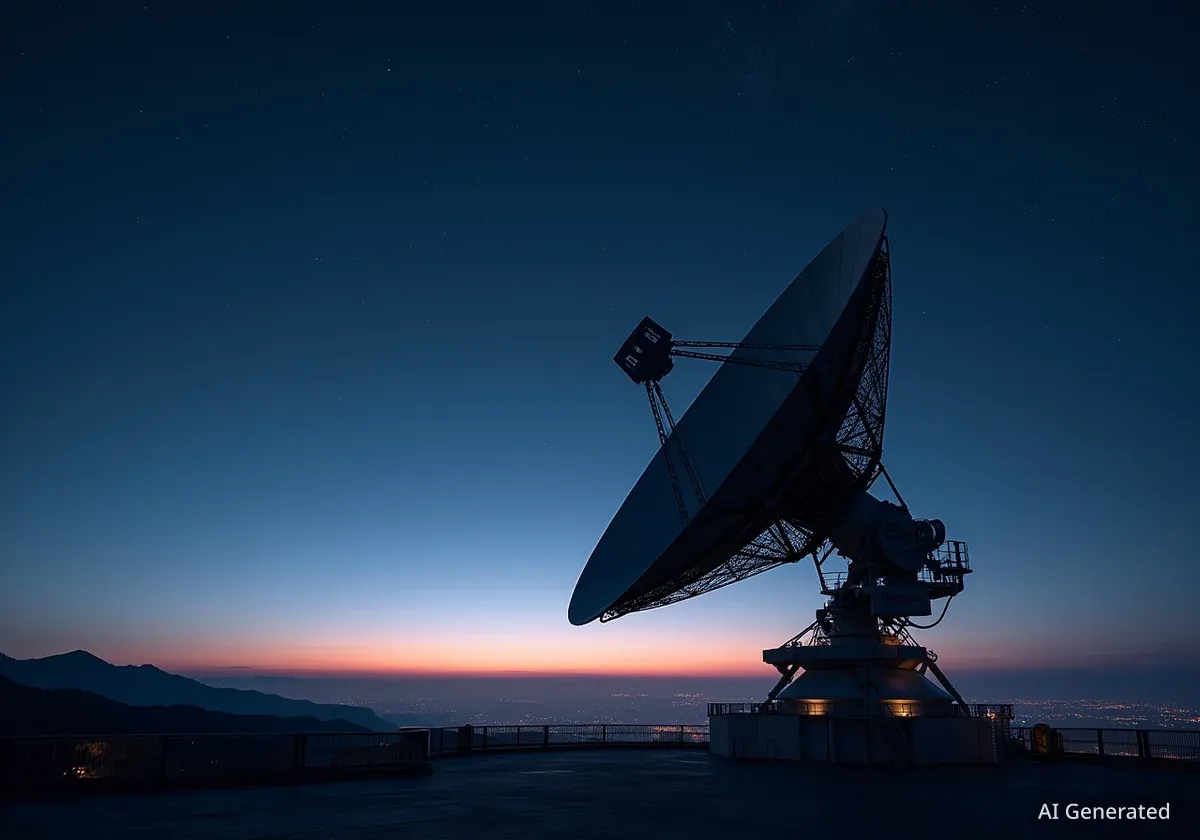European leaders have unveiled a proposal for a new integrated space program designed to enhance the continent's security and resilience. The initiative, presented at a high-level conference in Brussels, aims to create a unified system for secure communications, intelligence, and positioning, independent of other global powers.
The European Space Agency (ESA) is championing the "European Resilience from Space" programme, which will be formally proposed to member states for funding at the upcoming ESA Ministerial Council in November. This move signals a significant push towards greater strategic autonomy in an increasingly contested space domain.
Key Takeaways
- The European Space Agency (ESA) has proposed a new optional programme named "European Resilience from Space".
- The program aims to integrate remote sensing, secure connectivity, and positioning services for enhanced security.
- It will serve as the foundational pillar for the future EU Earth Observation Governmental Service (EOGS).
- A formal funding proposal will be made at the ESA Ministerial Council in Bremen on November 26-27, 2025.
A Unified Vision for European Security
At the "Space for European Resilience" conference, held under the Danish presidency of the Council of the European Union, officials stressed the urgent need for a cohesive European space strategy. European Commissioner for Defence and Space, Andrius Kubilius, outlined the core objectives, emphasizing the importance of secure intelligence, reliable positioning, and robust communications and connectivity.
The conference brought together key figures from European space and defense sectors, including representatives from the space agencies of France, Switzerland, Poland, and Denmark. The discussions highlighted a shared understanding that Europe's current fragmented approach to space assets is insufficient to meet modern security challenges.
Addressing Strategic Gaps
ESA Director General Josef Aschbacher presented the details of the proposed programme, describing it as a critical step to overcome existing divisions. He warned that Europe's capabilities are too scattered to guarantee genuine and comprehensive resilience from space.
"In this moment of rapid change, there is a critical need to synchronise European initiatives by aligning space for defence competencies, avoiding duplication and pooling resources for scale. We still remain too fragmented to guarantee Europe with genuine, comprehensive and autonomous space resilience. We have an opportunity to change that, and we must."
The programme is designed to provide a unified framework, ensuring that different national and European systems can work together seamlessly to provide rapid and secure information to users on the ground.
Programme Integration
The "European Resilience from Space" initiative plans to integrate five key technological areas:
- Remote Sensing: Advanced Earth observation capabilities.
- Connectivity: Secure and reliable communication networks.
- PNT: Precise Positioning, Navigation, and Timing services.
- Spectrum Monitoring: Overseeing radio frequency usage to prevent interference.
- Internet of Things (IoT): Connecting vast networks of devices securely.
The Foundation of a New Service
The proposed ESA programme is not a standalone project. It is intended to be the first programmatic pillar supporting the future Earth Observation Governmental Service (EOGS) of the European Union. This long-term service aims to provide European governments and agencies with highly responsive, dual-use, and independent space-based observation capabilities.
The EOGS will deliver rapid, reliable, and secure data, products, and services for both civilian and security applications. This dual-use nature is crucial, allowing the system to support everything from disaster response and environmental monitoring to border control and military intelligence.
Key ESA directorates, including Earth Observation led by Simonetta Cheli and Connectivity and Secure Communications led by Laurent Jaffart, are central to the development of this proposal, highlighting the cross-disciplinary effort behind the initiative.
Building on Previous Momentum
The Brussels event follows the successful 3rd ESA Security Conference, which was hosted in Warsaw in April 2025 under the Polish Presidency of the Council of the EU. These consecutive high-level meetings demonstrate a growing political will across Europe to prioritize space as a critical domain for security and defense.
High-Profile Support and Future Steps
The conference featured influential speakers who endorsed the need for greater European collaboration in space. Keynote addresses were delivered by Anders Fogh Rasmussen, former Danish prime minister and Secretary General of NATO, and Major General Pierre Ciparisse, Commander of Belgium's cyber command. Their participation underscores the convergence of space, defense, and cybersecurity policy.
Mario Kadastik, chairman of the European Interparliamentary Space Conference, also spoke, indicating broad political support for these initiatives within European legislative bodies.
The Path to Funding
The future of the "European Resilience from Space" programme now depends on securing financial commitments from ESA's member states. The formal proposal will be tabled at the ESA Ministerial Council in Bremen, Germany, on November 26 and 27, 2025. This meeting is where member states will decide which optional programmes to subscribe to and fund.
Further long-term funding for Europe's space security ambitions will also be a key topic in the negotiations for the EU's next long-term budget, the Multiannual Financial Framework for 2028-2034. The decisions made in the coming months will determine the trajectory of Europe's strategic autonomy in space for the next decade and beyond.





